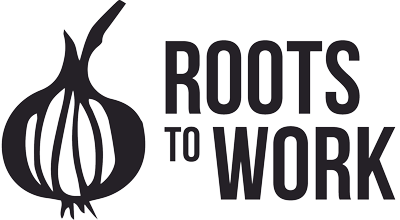
Why neurodiversity?
We thrive on diversity - of background, experience and perspective. When it comes to campaigning on food and farming and the huge and complex problems we face, innovation and problem-solving are key, making valuing diversity, including neurodiversity, essential.
This Neurodiversity Celebration Week, we are exploring why neurodiversity matters in the food and farming sector, how organisations can foster inclusive workplaces, and the practical steps they can take to support all staff, as well as importantly celebrating some of the fantastic neurodivergent change-makers in the sector.
The term neurodiversity refers to everyone and encapsulates the multitude of different ways that people's brains work. Neurodivergent individuals, including those with autism, ADHD, dyslexia and other cognitive differences, have brains that work differently to neurotypical people, and this accounts for approximately 15-20% of the UK population. The term “neurodistinct” is also sometimes used an alternative term for "neurodivergent," emphasizing the unique strengths and abilities of individuals whose brains function differently from what is considered "typical".
Neurodivergent people often bring important strengths to the table, such as creativity, passion, big systems thinking, enjoying hands-on work, detecting patterns and problem-solving abilities, all of which mean that neurodivergent individuals may be both drawn to and well suited to work to improve the food and farming system. Yet, outdated misconceptions and workplace barriers can prevent people from participating and thriving, and mean the food and farming sector is missing out these strengths.
Barriers to neuro-inclusion
Neurodivergent individuals can face multiple barriers in the workplace, which can lead to a burden (emotional, cognitive and physiological) of having to adjust to working systems that are more likely to have been designed by and for neurotypical people, as well as the burdens of masking or overcompensating to hide the fact they are experiencing difficulties. However, there are many ways that these barriers and burdens can avoided or reduced to create a more inclusive environment which benefits everyone.
- Stigma, discrimination and exclusion – some neurodivergent people may face this based on their neurodivergent identity, and this can contribute for fear of asking for support. Additionally, some face assumptions that they will have ‘superhuman’ abilities in a certain area, which isn’t always the case, and this stereotyping can be harmful, particularly if it ignores the difficulties neurodivergent individuals can also face. Workplaces can seek to combat this by working to have an inclusive and kind culture, clear standards of behaviours, training for all staff, leading by example, and ensuring any team building activities are inclusive.
- Sensory - some neurodivergent people may have sensory changes which can make working in certain conditions difficult or distracting. Simple adjustments such as offering a quiet space, noise cancelling headphones, adjusting lighting, or allowing flexible working arrangements can help to combat this, as well as discussing this with the individual directly to understand what would work best.
- Communication – some neurodivergent people may experience challenges around communication such as difficultly with social cues or interpreting non-verbal communication. Being clear and direct in our communication, avoiding jargon or wording that can be left open to interpretation, using visual aids, and ensuring any changes are communicated ahead of time can all help to reduce communication challenges.
- Diagnosis - It is important to note that not everyone that is neurodivergent has a formal diagnosis, and NHS waiting lists for adults in the UK can be years long, meaning many may not have access to diagnosis, medication or other support. The workplace can still provide support and ensure that the environment is inclusive.
For some neurodivergent individuals, food itself can present unique challenges. For example, research has suggested that some people living with ADHD may be more likely to consumer higher amounts of ultra-processed foods or have a lower intake of fruits and vegetables compared to those without ADHD. Additionally, some may experience difficulties with meal planning, cooking, and maintaining regular appetite patterns. Sensory issues around food are also more common in neurodivergent individuals, which can limit their food choices and, in some cases, increase their food costs. These challenges are important to recognise, as they can impact both nutrition and overall well-being. Employers can also take steps to ensure any food provided to staff takes diverse dietary needs into account, and that people are able to take proper meal breaks.
Supporting neurodiversity
To better support neurodivergent individuals, national and local governments should consider implementing policies that address these specific needs, integrating neurodiversity into public health initiatives and promoting inclusive food environments, to reduce barriers to healthy eating and support the well-being of neurodivergent people across society.
Workplaces have a moral and legal duty to be neuro-inclusive. Where appropriate, staff can request reasonable adjustments to reduce or remove a disadvantage related to a disability or health condition, including neurodivergence. Reasonable adjustments are specific to an individual person, and can be for physical or mental health conditions. Reasonable adjustments should be considered on the needs of the individual and aren’t a one size fits all. All employees also have the legal right to request flexible working from their first day in the job, which can include changes to: the number of hours they work, start and finish time, which days they work and where they work from.
To truly support neurodiverse talent, workplaces need to foster a culture of listening—where employees feel comfortable sharing their needs and are confident that their voices will be heard and respected. Organisations should proactively create inclusive workplaces by offering accommodations such as flexible work arrangements, mentoring programs, and training for staff to understand neurodiversity better. Embedding a culture of open communication and support is critical. This means creating spaces where everyone, including neurodivergent individuals, can speak up without fear of judgment. Organisations should actively work to understand the unique needs of their teams and provide accommodations where necessary, whether that’s flexible working hours, alternative communication methods, or quiet spaces for focus. When neurodiverse individuals feel empowered to be themselves and know that they will be supported, they are more likely to contribute their skills, ideas, and solutions to the movement, ultimately helping to create a more inclusive, innovative, and impactful charity sector.
Lexxic have produced a useful, interactive guide for employers to help employers to be ‘neurodiversity smart’, ensuring neuro-inclusivity within the workplace. The guide includes a series of Top 10 recommendations and signposting to further resources across areas including recruitment, leadership and culture, environment, adjustments and communications.
Celebrating neurodiversity in the food and farming sector
While there are many neurodivergent people among food campaigners, farmers and producers, network and grassroots leaders, there is rarely a platform or opportunity to weave our personal identities into our work. This blog platforms a few of the people and projects working towards neuro-inclusivity in food and farming. We thank those who got in touch with us offering to share a bit more about their work and experiences as neurodivergent food system actors. If you’d like your work included and featured, please don’t hesitate to get in touch with us!
Stef Lake (she/they)
Freelance facilitator & community engagement specialist

Stef is a community engagement specialist with a commitment to tackling food insecurity through dignity-focused, community-led solutions. As the co-founder of the Alliance for Dignified Food Support, she works with food partnerships and grassroots organisations across the UK to develop evidence-based recommendations and campaigns aimed at moving beyond food banks. Stef has a background in strategic leadership and has played a key role in developing trauma-informed practices, volunteering strategies, and community engagement initiatives. Their work has included collaborations with East Sussex Public Health on their healthy weight strategy, engagement with local councils on cost-of-living responses, and co-developing participatory projects that centre the voices of those with lived experience of a range of issues. Stef co-produced Sussex Community Development Association’s guidance ‘How can we be an autism inclusive organisation?’. Currently, Stef provides freelance facilitation and consultancy, supporting national and local organisations in designing sustainable, impactful approaches to food insecurity. At the moment they are enjoying working on the Food Roots programme in Greater London.
“Being diagnosed as autistic in 2017 was a transformative experience that has helped me better understand myself. My neurodivergence has been instrumental in shaping my career and I have many strengths that I attribute to being autistic, including the ability to immerse myself in issues I’m passionate about, a strong sense of integrity and social justice, and the ability to communicate with clarity and empathy. Many of the challenges I’ve faced stem not from autism itself, but from navigating a world that isn’t always designed for neurodivergent people. In my experience, common misconceptions about autism, especially when I don’t fit the stereotypical presentation, can be one of the biggest barriers in professional spaces. Because of this, I’ve been committed to creating more inclusive environments, working with organisations to co-produce guidance on becoming autism-friendly. This has included a focus on affirmative language, challenging outdated narratives, and celebrating the strengths of neurodiversity. I am incredibly proud of my identity and the perspective it brings to my work in the food sector, where understanding different lived experiences is crucial for building equitable, dignity-focused solutions.”
Vera Zakharov (she/her)
Local Action Coordinator, Sustain

Vera works with the Local Action Team at Sustain, linking up place-based activity and leadership on good food to help drive national-level policy change. Vera has worked at Sustain on a number of programmes and campaigns over the course of eight years, including Sustainable Food Places, Sugar Smart, Veg Cities, Good Food Movement-building, Healthy Start advocacy and more recently supporting Sustain’s supply chain work through the Local Food Plan and Bridging the Gap. She previously worked on Brighton & Hove’s Food Use (not food waste) campaign and helped set up a member-run food coop and a surplus redistribution project. She is also passionate about river ecosystems, producing both poetry and public talks on waterways through a queer ecology lens.
“I’m fairly new on the journey of identifying, harnessing and finding better ways of working with my neurodiversity. I have been aware of my synaesthesia - a neurological condition where stimulation of one sensory or cognitive pathway leads to involuntary experiences in another, such as seeing letters and numbers through colours – since youth. But I’ve only discovered my ADHD and autism in 2021 and have spent time since then learning about these conditions, how they present in women, and a lot of my internalised stigma, including the interplay between neurodiversity and leadership narratives. But one thing is clear - systems thinking is so perfectly suited to how my mind works. There is no hierarchy of importance among the issues our food and farming movement works to address, and everything is interconnected. My ND experience is one of undoing silos, and that is reflected in our movement, where our strength is in the way we carry the essence of that interconnectedness between health, ecology and economy in every action and campaign.”
Michael Brown (he/him)
Social Entrepreneur and Founder Director of Empower to Cook

As a TEFL (Teaching English as a Foreign Language) teacher in Japan, Michael combined his skills as a professional chef with his entrepreneurial spirit, using cooking as a dynamic way to teach English. Students learned to prepare European dishes while developing their language skills in an engaging, hands-on environment.
Upon returning to the UK, Michael became a lecturer in Food Education at a further education college, where he taught for 14 years. During this time, he recognised a significant gap in food education within his local community in High Wycombe and felt compelled to make a change. After being made redundant and seeking a role that aligned with his neurodiverse strengths, he founded Empower to Cook, a social enterprise dedicated to equipping people with essential life skills through food and cookery. Over the past 10 years, Empower to Cook has worked with schools, care agencies, and vulnerable community groups, improving confidence, independence, and well-being through hands-on cooking and nutrition education. The enterprise also collaborates with corporate partners, generating income to expand its reach.
Michael is now focusing on the bigger picture, advising on transforming and improving the wider system of food education across Buckinghamshire and hopefully beyond, ensuring that everyone, regardless of background or ability, has access to high-quality food education delivery.
You can read Michael’s blog here to find out more.
Would you like to have your story and/or project included in this blog? Please get in touch with Isabel and let us know!



